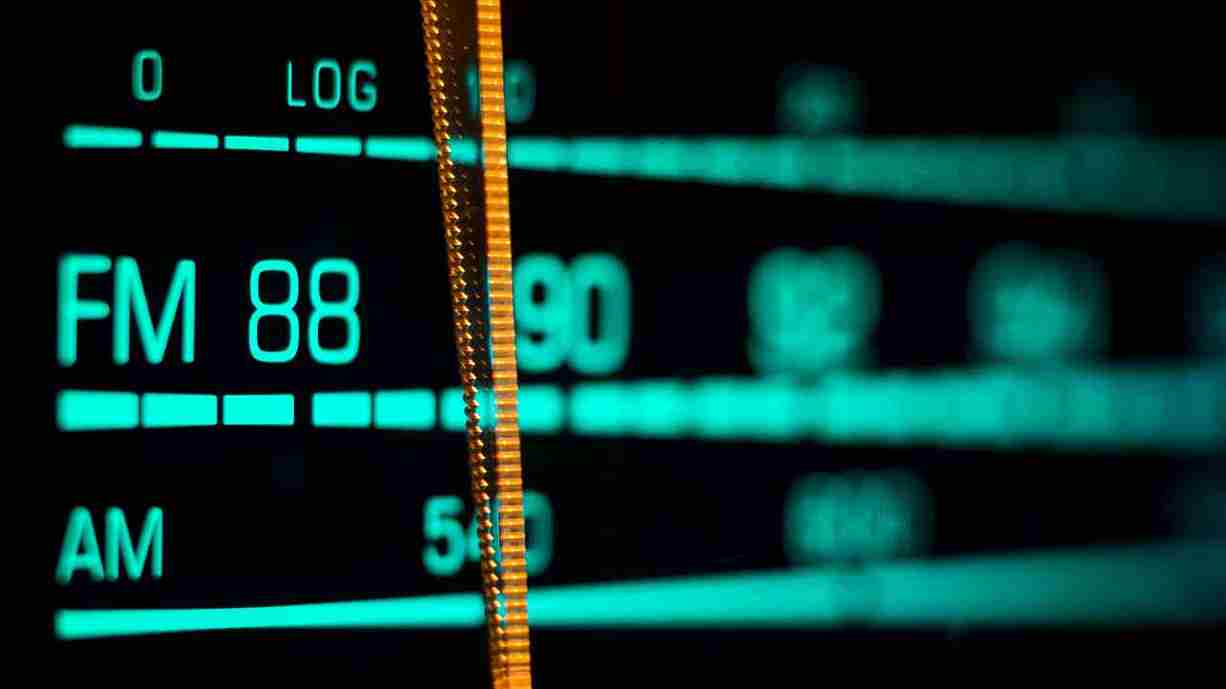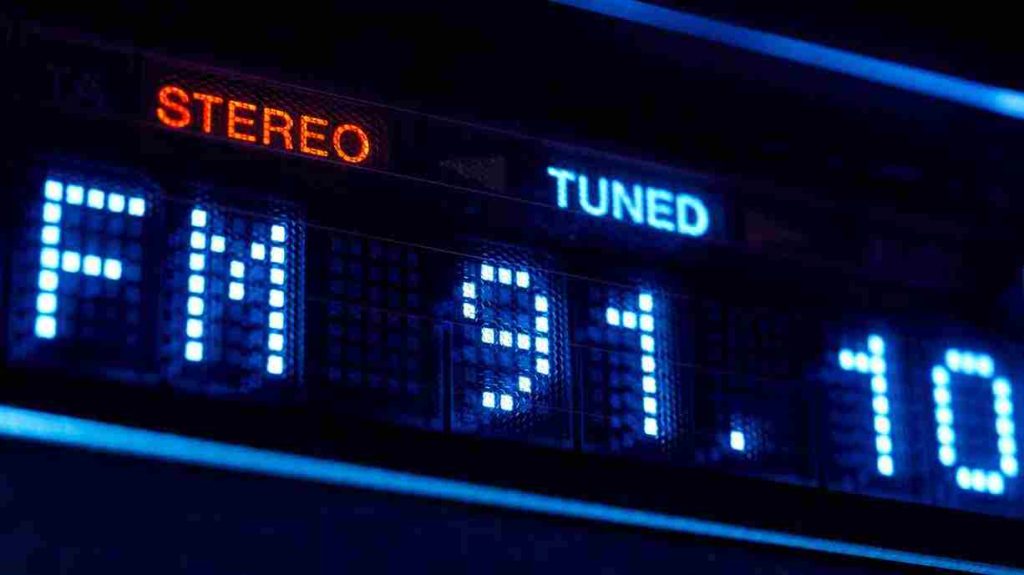Physical Address
#1 Shell Camp Owerri, Nigeria
Physical Address
#1 Shell Camp Owerri, Nigeria

How do Radio Stations Make Money? I know you pondered this question while listening to your favorite radio stations, but there wasn’t an answer.
It costs a lot of money to run a radio station. Radio station owners must spend money on pricey equipment, song licensees, and top-notch talent to provide the best material to their listeners nationwide.
So, how do these channels continue to operate without an identifiable revenue stream? This article will answer the question.
Generally speaking, each radio station focuses on a specific topic. A music station would focus on music, while a news channel would make broadcasting news its main objective.
Because of this, many news channels will have reporters in the field doing broadcasts from various locations or conducting research and focusing on one specific news story.
Consequently, the news reports from these other radio stations can be purchased and aired by other stations that want to mix and match their programming.
Radio plays a critical role in today’s media landscape because of its ability to connect with its listeners.
Radio listeners are also interested in news commentary and conversations.
The syndicated talk program may then be sold to other radio stations to boost their audience. So, selling a famous syndicated radio show is a terrific method for a radio station to get some extra money.
Advertisement is the primary means for a radio station to raise money to cover operating costs. In fact, it is one of the top ways radio stations make money.
Sales representatives frequently approach businesses in the area from the local radio station, who present them with broadcasting packages and persuade them to advertise on the air.
This type of commercial is known as a “spot” on the radio.
Spots are priced according to several factors, including the time of day they air, the length of the spot, the airtime, and the placement of the advertisement.
To maximize their effectiveness, these commercials should run at times of the day when a larger audience is likely to tune in.
Some radio stations will attend a community event and broadcast live as part of remote broadcasting.
Music festivals, sports tournaments, fundraisers for non-profits, etc, are all possibilities for the event.
Advertising from a specific sponsor could be one method of making cash. Merchandise from the radio station might be sold to generate additional cash at these events.
In addition, a share of the box office could be earned.
Offering a variety of packages for advertisers is another approach for a creative radio station to generate additional revenue streams.
Spots would be produced and aired at specific times and lengths as part of the basic package.
Premium services can be added to the radio station’s standard package for advertisers with additional investment from the company.
As an illustration of a premium benefit, consider the following:
Each new premium service offered would necessitate more financial contributions from the sponsoring company.
Sponsored Content is one of the top ways radio stations make money.
It is also possible to gain revenue through sponsored content, where radio presenters can promote certain products or activities throughout their shows.
Often, this endorsement resonates with their fans and helps to not only promote the product but also to sell it. This is beneficial to the company that wishes to advertise its products.

It’s possible to earn money by promoting other companies’ products and services as an affiliate of a radio station. This is how it works:
For example, suppose a business advertises on the radio station’s website with a banner, and a customer clicks on the banner and purchases anything. In that case, the radio station will get a cut of the sale.
Allowing a particular advertiser to be the headline sponsor of a broadcast is a very effective technique for a radio station to make a high income.
Other marketers cannot participate in the advertising support because of this exclusivity.
Some advertisers may find this particularly enticing if the radio show in question is highly well-liked and they can advertise their product or service on the air.
Another source of money for certain radio stations comes from the generosity of their listeners in the form of charitable gifts. Several radio stations on this list have been broadcasting continuously for decades.
Many people donate to keep the station on-air because they want to keep their favorite radio station alive in their minds.
Additionally, these radio stations are geared toward a specific demographic and offer distinctive programming to their listeners.
It is common for a well-known radio station to take advantage of its popularity with its listeners.
This can be done by creating an avenue that can be marketed to the band’s existing audience.
For example, Hoodies, baseball caps, and coffee cups are all common merchandising items.
By making this merchandise available to the listening audience and beyond, you’ll be able to generate more cash.
In addition to on-air advertising, web advertising is a source of revenue.
The radio station sells this online marketing option to advertisers, who can promote their products when they visit its website.
On the other hand, some radio stations permit online streaming of their broadcasts.
A corporation might use the internet to stream radio broadcasts to their customers’ computers or other devices to advertise a product.
More so, video commercials or banners that scroll across the radio’s website might be used for advertising.
How do Radio Stations Make Money? Because radio is not an instant success, many in the industry have great knowledge and expertise.
If others want to benefit from this person’s knowledge and skills, they can hire the radio station for consultancy services. The radio station would benefit from the consultancy services given by its employees.
Radio stations can improve their revenue stream by charging callers when they are encouraged to call or text the station.
Competitions are often used to persuade listeners to phone or text the station.
Callers are frequently enticed to participate by promising that they will be highlighted on air or that they will be entered into a contest to win various rewards and prizes.
Each time a listener calls in, the radio station charges a small fee to cover the costs of answering the call.
Remote broadcasting is common when a new or noteworthy business event occurs in the community. It is one of the top ways radio stations make money.
This event will be attended by radio personalities who will be broadcasting live from the event to promote the company. To do this, they interview people on air during their broadcast. Drawings and gifts entice listeners to attend the event.
These businesses will attempt to attract clients through this method to inaugurate or commemorate so many years in operation.
As a result of their efforts in promoting the event, radio stations will earn compensation.
Offering premium services or memberships in a radio club might help a radio station generate additional cash.
Club members would gain access to perks that other listeners wouldn’t have access to if they paid a monthly charge. A few examples of these benefits include:
It is one thing to air and run ads on a program, but it is quite another to make money from it.
That’s when time slot knowledge comes into play. The station must be able to identify its audience’s peak listening times or rush hours.
People are supposed to take a break and stay at home during these periods. For an ad to be effective, it must be noticed by the intended audience.
Do you like TV shows? Find out How TV Shows Make Money (Full details) | 2023
Government funding for radio stations often serves to maintain and promote a diverse media landscape, ensuring that commercial interests don’t solely drive content.
Public and community radio stations, in particular, might receive government grants or subsidies to produce educational, cultural, or community-oriented programming.
This funding can help stations operate, create content, and sometimes upgrade equipment or facilities.
In some countries, a portion of the license fee paid by households for owning a TV goes towards public broadcasting, including radio.
This model ensures that certain stations can provide valuable content without relying heavily on advertising revenue.
Merchandising involves radio stations creating and selling branded items, such as t-shirts, mugs, caps, and stickers, to generate additional income.
This provides financial support and serves as a marketing tool, enhancing brand visibility and listener loyalty.
Fans purchasing and using these items essentially become walking advertisements for the station.
The merchandise might be sold online, at events, or through retailer partnerships.
Profits from merchandising can be utilized to fund operations, create content, or be reinvested into promotional activities, thereby contributing to the station’s sustainability and growth.

Radio and television frequencies are always in high demand, so anyone interested in applying for these services should know.
Many competing applications are submitted when the filing window for new stations opens.
You must submit an application to obtain an official building permit for your radio or television station.
No frequencies are available in many parts of the country where a new station could start operating without interfering with existing stations, contravention of FCC rules.
You should avoid purchasing any equipment until the FCC issues a construction permit.
A broadcast spectrum license permits the holder to broadcast over a specific portion of the radio frequency spectrum in a specific geographic area.
The restrictions included in the licenses can vary from one brand to the next. The Commission assigns VHF and UHF license channels based on the license terms.
A low-power or high-power transmitter may be allowed to be used by the licensee.
Accordingly, the coverage area is predetermined in all cases, as in radio, based on the applicant’s application form and the number of available channels.
The amount of money you can make from commercials and advertising when you start your own radio station is limited.
It’s ethically wrong to receive more than 50% of your income from a single funder.
Grants and donations will be your lifeline, and you can take advantage of them all.
As a result, you’ll likely need to do all these things and more to survive and thrive.
Choose between a low- and high-powered radio station.
Depending on how far your station intends to broadcast, determine how much power you’ll need to run it.
Tens of thousands of watts are required for a full-power station, while only a thousand watts are required for a low-power station.
Have your broadcasters practice their shows for a few weeks before going live.
There are some things they’ll have to get used to, such as the microphone and how to use it.
Try to iron out any problems with your schedule. Before you start broadcasting, make sure everything is working properly.
Find out the Top 10 Best Acting Schools in the World | 2023
After looking at how Radio Stations make Money, let’s check out how to promote a new radio station.
Where do you work as a manager for the radio station? What is the typical age of the population?
When speaking to an adult audience, you wouldn’t use the same language as when speaking to a teenager.
The last thing you want to do is waste time advertising your radio station to people who have no interest in listening to it.
Prepared shows with interesting content should be given precedence over unprepared crises.
If your shows interest your audience, they are more likely to return. In the beginning, plan out your breaks and music. When you’re in the air, you’ll feel more at ease.
Now that you have a clearer picture of your target market, it’s time to master the art of social media communication.
A Facebook, Twitter, or Instagram account alone isn’t enough these days to increase your visibility.
You need to interact with your audience on a regular basis. Use trending hashtags in a way that is relevant to your personal style.
Radio websites are always better than Facebook pages because they allow your audience to see your most recent information in one place.
In addition to providing access to your radio station, latest articles, and social media accounts, a website serves as a meeting place for your audience. You’ll look more professional to potential business partners if you have a website.
Using search engine optimization (SEO), you can raise your site’s position in Google’s rankings.
You can improve your SEO in a number of ways. The first is to ensure your radio station has all the information it needs, including a logo and a detailed description with relevant keywords.
Identifying your county or state as a regional radio station is best. If you’re more accurate, your referencing will be more relevant to the topic at hand.
A good way to get to know each other quickly and easily is to use this old-fashioned method.
Get your hands on some flyers and get to work in a crowded area. This will give you the opportunity to meet new listeners and chat with the general public.
Getting your name out there is easy with the right kind of advertising. In addition, you must know where to communicate. Do you have a student radio station on the air?
Why don’t you reserve a spot in your university’s newspaper? Is this a local radio station or something?
The regional daily press is an excellent place to start. Sports radio stations have the opportunity to sponsor their own local sports teams.
The most important factors in determining a radio station’s value are its audience size and its position in the market.
At least 60% of Americans say they listen to online radio at least once a week, with more than two-thirds reporting that they do so monthly. Companies benefit from these services’ wide reach and long-term use in advertising and user engagement.
Even though radio’s future has been questioned numerous times in its history, it still exists. This form of media has an advantage over others that demand a person’s full attention, such as television or print, because of the medium’s inherent portability.
A quality radio station has all of these components: great sound, great content, great DJs, and great branding (such as the information on your station’s profile page). An internet radio station doesn’t require a lot of money or effort to get up and running.
In order to start an internet radio station, you don’t need an unlimited budget or even a lot of expensive equipment. A microphone, headphones, and a registered Airtime Pro station are all you need to get started.
Regarding your favorite radio stations, there isn’t usually a fee unless you use a digital membership service.
A host of AM/FM frequencies are free to listen to every day, and they’re available to us at any time.
On the other hand, making a living as a broadcaster, whether small or large, necessitates long hours and a strong commitment to quality content.
If one strategy doesn’t work for you, try the next one.
Try various methods until you find the one that works best for your radio station, whether it’s advertisements, products, or affiliate marketing.
If a radio station wants to make money, it can use any or all of the ways outlined above to supplement its basic mission of delivering information.
Awesome one; I hope this article answers your question.
Editor’s Recommendations: